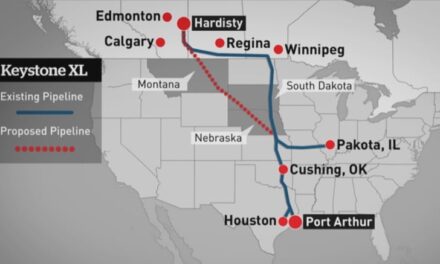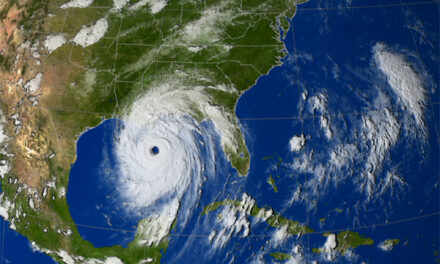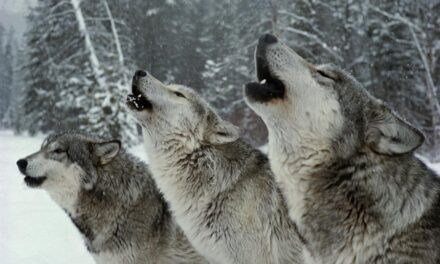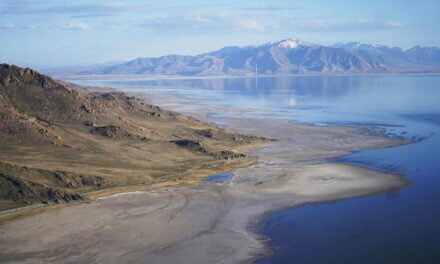I’m not gonna lie. I’m afraid of bears. I don’t think I ever recovered from learning that a grizzly bear had killed a camper in his tent in Yellowstone Park on the same night that I was camping there with my brother in 1982. I revisited Yellowstone a few years ago, armed with bear spray, and I had a wonderful time. But I was still pretty anxious when hiking in remote areas. We did come across a carcass a mountain lion had munched, so maybe I was worried about encountering the wrong predator.
Where I live in Pennsylvania, we do have black bears, but I’ve never seen one and they don’t worry me as much. In any case, I will admit I’d be concerned if the federal government announced that they were introducing grizzly bears on nearby federal land. And that’s what the Biden administration has done with respect to Washington state’s North Cascades.
The North Cascades ecosystem — a largely undeveloped 6.1 million acres that holds wild animals, rainforests, glaciers and meadows — was home to grizzly bears for centuries until hunters decimated them in the 19th and 20th centuries, when thousands of hides were shipped from area trading posts.
By the time grizzly bears were listed as threatened under the Endangered Species Act in 1975, few remained in the North Cascades, Servheen said. The last one was spotted in 1996.
The plan is to introduce up to seven grizzlies a year until there are twenty-five. They expect it will take 60-100 years for this population to grow to two hundred. Currently, the plan is receiving public comment, and there’s some vociferous opposition, as detailed in a panicked coverage from Fox News.
“Nobody needs grizzlies, nobody needs wolves,” another resident added during the event last week. “And the thing we need even less than that is the Department of Fish and Wildlife. These guys know nothing about fish, they don’t care about wildlife. All they want to do is ruin the most important people, which is farmers and ranchers who grow our food. There’s no reason for these people, there’s no reason for grizzly bears.”
“If any grizzly bear comes around my place, I’m shooting it,” he said.
Native Americans have a different view.
Tribes and conservation groups say that bears belong on the land. Grizzly bears would be moved from well-populated areas, such as the Yellowstone region, to the North Cascades each summer until the population became big enough to sustain itself…
…Scott Schuyler, a policy representative for the Upper Skagit tribe, said he would support making the bears an experimental population “if it ultimately achieves the end” goal of reintroducing grizzlies. “We’re hopeful that things will proceed,” he said.
“We feel this inherent hereditary need to protect the creatures in the environment and speak for them, and in particular the ones that have been lost,” Schuyler said. He noted that his people once coexisted with grizzlies and, like the bears, were threatened with removal by settlers. “The grizzly bear’s survival is, in a sense, the survival of our culture, our history.”
Schuyler’s mention of an “experimental population” is a reference to one of the three proposed plans. By designating the bears as experimental, it gives the government more leeway to intervene when the bears stray onto private property. It’s the Fish & Wildlife Service’s attempt at a compromise solution.
Leading the opposition is local U.S. Congressman Dan Newhouse.
“As a farmer, I worry not only about the bears destroying my crops, but for the safety and well-being of myself, my family, and my on-farm hands,” Newhouse remarked during the session. “It is clear you all know that grizzlies can and probably will move out of the zone in which you drop them in, yet rather than letting common sense prevail, are continuing to push forward with this dangerous plan.”
Obviously, one problem is that the bears are protected, so you can’t simply shoot them if they come on your property. But even if you could shoot them, I can understand why it’s something you’d rather not worry about. So, I know it’s easy for me to casually support this program knowing that living thousands of miles away it will have no impact on me.
On the other hand, there are only a handful of places in the country suitable for the re-introduction of grizzlies.
Bringing them back would be the culmination of a decades-long effort to restore grizzly bears to the ecosystem, one of six spots in the country where federal biologists have aimed to recover decimated populations.
I can’t accept that there’s nowhere in our country where grizzly bear populations can be introduced. And I know there will be understandable resistance to it.
But sometimes we just need to suck it up and have some courage. Easy to say, harder to do.








Working as a fed biologist in the west and east, I have a minority viewpoint in the profession. Always thought they should allow these populations to come back naturally with the full protection of the ESA. Still feel this way even though the Yellowstone wolf reintroduction has been successful. I believe Yellowstone grizzlies will be back on the endangered list because all of their main food sources are threatened. Whitebark pine is declining due to climate change and cutthroat trout are preyed upon by invasive lake trout. The miller moth that the bears eat due to its high fat content seems to be increasing.
Agree that ranchers and farmers are going to have to suck it up. This program will likely compensate them for bear damages. It’s the 21st century and we are smart enough to know how to coexist with bears and wolves.
I’m an avid hiker and backpacker and have spent many nights camping in bear country wilderness. Over the years I’ve had a number of interactions with bears. I’ve seen and taken pictures of quite a few from a distance (including a mother and cub in North Cascades!). I had my food stolen in the Adirondacks by a clever black bear that defeated my approved bear canister. I was bluff charged by a grizzly bear in Denali (the only time I’ve ever come close to using bear spray).
All this is to say that I’ve probably been around more bears than your average American. They can be scary, but nature often is – isn’t the point of having wild spaces so that they can be wild? It’s entirely due to humans that their population has dwindled, and if we have the power to try to fix our mistake, I think we should. And at this point there are well established practices for living in and visiting bear country.
The only thing I worry about is that it may encourage more people to carry firearms in these areas, regardless of the legality of doing so. I consider people with firearms to be the #1 threat to my safety in the backcountry, much worse than bears. This is, of course, not an argument in favor of inaction, just a concern of mine.
Working as a federal biologist in both the west and east, I hold a less common view in my field. I’ve always believed in letting populations return naturally with the full protection of the ESA. Even though the Yellowstone wolf reintroduction succeeded, I still think this way. I predict Yellowstone grizzlies might end up back on the endangered list because their main food sources are at risk. Whitebark pine is declining due to climate change, and cutthroat trout face threats from invasive lake trout. On a positive note, the miller moth, a key part of the bears’ diet, seems to be increasing.
I agree that ranchers and farmers might need to accept some challenges. This program will likely compensate them for bear damages. It’s the 21st century, and we have the knowledge to coexist with bears and wolves.